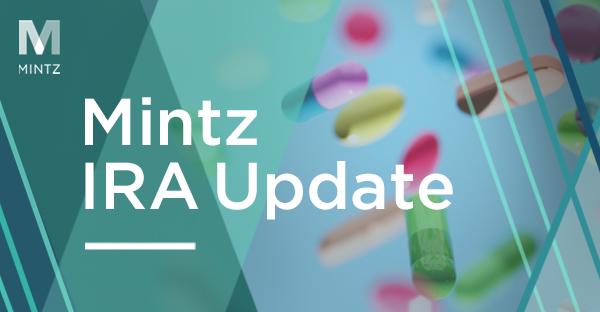
Stephnie focuses her practice on advising clients across the health care industry on regulatory, transactional, and compliance matters. She serves as regulatory counsel to private equity firms and other investors in transactions involving a range of health care targets, including health care systems and other health care providers, PBMs, pharmacies, nurse staffing companies, and laboratories. She regularly advises pharmacies, PBMs, third party payors, digital health companies, value-based contracting entities, and care providers on regulatory matters. With her previous experience at a state Medicaid agency and the Medicare Appeals Council, she is able to strategically advise clients on regulatory and compliance issues relating to Medicare and Medicaid.
Prior to joining Mintz, Stephnie was an attorney advisor at the Office of General Counsel of the DC Department of Health Care Finance. Stephnie provided DC’s Medicaid agency with legal and compliance counsel and defended it in administrative proceedings, including provider appeals of Medicaid payment suspensions based on allegations of fraud and pharmacy overpayment recoupments identified by state Medicaid audit. During the COVID-19 pandemic, Stephnie helped to ensure the agency’s compliance with the CARES Act. Earlier, Stephnie was an associate at Healthcare Legal Solutions, LLC, where she reviewed hospital and health care providers’ medical claims and billing practices, drafted administrative appeals on behalf of providers, and strategized with clients to ensure compliance with Medicare and Medicaid regulations and reduce payment denials.
While attending George Washington University School of Law, Stephnie was managing editor of the Federal Circuit Bar Journal. She also served as a legal extern for the Medicare Appeals Council, housed under the Departmental Appeals Board at the Department of Health and Human Services, and clerked for two law firms in the Washington metropolitan area.
Not admitted to practice law in New York. Admitted to practice only in the District of Columbia.
viewpoints
MintzRx Newsletter — Your Prescription for the Pharmaceutical Supply Chain
October 3, 2022 | Article | By Theresa Carnegie, Tara E. Dwyer, Xavier Hardy, Stephnie John, Bridgette Keller, Lauren Moldawer, Pat Ouellette, Hassan Shaikh
MintzRx is a regular newsletter providing you with everything you need to know to stay abreast of the legal, regulatory, and industry developments across the pharmaceutical supply chain.
Senate Democrats Pass Long-Awaited Drug Pricing Reforms in Budget Reconciliation Bill
August 10, 2022 | Blog | By Bridgette Keller, Stephnie John
On August 7, 2022, after extensive deliberation, Senate Democrats passed their long-awaited reconciliation bill, the Inflation Reduction Act of 2022 (the Reconciliation Bill). In addition to climate and tax provisions, the Reconciliation Bill includes a revised drug pricing reform package that Democrats had approved last month. In this post, we review what passing the long-awaited drug pricing reforms means for Medicare recipients and for drug prices in the United States.
Medicaid Best Price 101: A Review of Medicaid Best Price Policy and New CMS Guidance on Medicaid Best Price Reporting for Value Based Purchasing Arrangements
April 26, 2022 | Blog | By Lauren Moldawer, Stephnie John
At the end of March 2022, the Centers for Medicare & Medicaid Services (CMS) released guidance to drug manufacturers and states on reporting Medicaid Best Price under value based purchasing (VBP) arrangements (Medicaid Best Price Guidance or Guidance). This Guidance follows CMS’ final rule issued on December 31, 2020 (Final Rule) responding to criticism that Medicaid Best Price requirements are hindering the use of VBP arrangements. The Final Rule and Guidance will go into effect on July 1, 2022, allowing manufacturers to report multiple best prices for VBP arrangements so long as the manufacturer offers the VBP arrangement to state Medicaid programs. This blog post will begin with a “101” on the Medicaid Best Price Policy, and then delve into an overview of the Final Rule, including the surrounding criticism from stakeholders; summarize the Medicaid Best Price Guidance; and discuss the potential impact of this change on states and manufacturers
Building on the Success of Medicare-Medicaid Plans, CMS Proposes Modifications for D-SNPs
January 14, 2022 | Blog | By Lauren Moldawer, Stephnie John
California’s Senate Bill 41: The Genetic Information Privacy Act
October 19, 2021 | Blog | By Stephnie John, Lara Compton
California Health Privacy Information Legislation Update
September 22, 2021 | Blog | By Lara Compton, Stephnie John
The Risks of HIPAA Non-Compliance Can Survive – and Even Grow – Post Closing
June 3, 2021 | Blog | By Dianne Bourque, Stephnie John
Medicaid Under the Biden Administration: The American Rescue Plan Act
April 15, 2021 | Blog | By Stephnie John
News & Press
A Mintz team led by Richard Gervase, Member and Chair of the firm’s Royalty & Revenue Interest Financing Transactions Group, advised global investment firm Sixth Street in a non-dilutive, senior secured credit facility of up to $475 million for Apellis Pharmaceuticals. Apellis received $375 million in funding at close, with ability to access an additional $100 million under the facility at the Company’s option prior to September 2025, subject to the satisfaction of certain conditions.
podcasts
Health Law Diagnosed – New Year's Gratitude
February 3, 2025 | Podcast | By Bridgette Keller, Alison H. Peters, Samantha Kingsbury, Theresa Carnegie, Joanne Hawana , Abdie Santiago, Stephnie John, Pamela Polevoy, Karen Lovitch , Jean D. Mancheno, Deborah Daccord, Rachel A. Alexander, Jane Haviland, David Gilboa, Kathryn Edgerton, Hassan Shaikh, Madison Castle, Laurence Freedman, Priyanka Amirneni, Samantha Hawkins, Tara E. Dwyer, Rachel Yount, Sophia Temis, Xavier Hardy
Host Of Counsel Bridgette Keller invites the Mintz Health Law team to reflect on what they’re grateful for as they prepare for the year ahead. Hear from a dynamic group of Members, Of Counsel, and Associates as they share their perspectives on what’s coming up over the horizon.
Health Law Diagnosed — Mintz Health Law Team: Reflecting on What We Are Grateful For
February 5, 2024 | Podcast | By Bridgette Keller
As the Mintz Health Law team welcomes the beginning of 2024, many of its members take a moment to reflect on the exciting growth of the Health Law Practice, opportunities to partner with clients on complex legal issues, and the celebration of numerous milestones.
Mintz Health Law: What We Are Grateful For
January 11, 2023 | Podcast | By Bridgette Keller
Bridgette Keller speaks with the Mintz Health Law team about what they are grateful for as they look back on a year of client service, mentorship, and working together as a team.
Recognition & Awards
Summer Public Interest Fellow, South Asian Bar Association (2015)
Involvement
- Legal Counsel, Dil to Dil, a nonprofit organization dedicated to South Asian mental health advocacy
- Member, American Health Law Association




